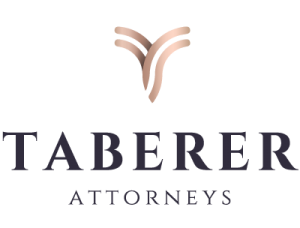A sense of identity is a fundamental aspect to our psychological function as individuals of the greater collective, and more so, plays an important role in defining how we relate to any environment we may find ourselves placed in. Each individual has certain features that are unique to them, irrespective of the fact that we have common attributes in appearance that ultimately make us human beings. This truth is interestingly applicable in the case and cause for registered trademarks, because that is what a trademark essentially is – a sense of identity when distinguishing the goods or services of particular entities.
In this article we will explore why a trademark, and a registered trademark in particular, is important when building your business.
What is a trademark?
A trademark typically is a word or marking such as a logo that you use in distinguishing your goods or services through a visual or aural representation or expression. It can be a name, letter, colour, pattern, slogan, design or any combination of these, as long as it is capable of being graphically represented.
A trademark is a class of intellectual property that allows the proprietor of the trademark the monopoly benefit of having a discernible representation which is recognizable, and thus sets the mark apart from all others. In other words, a trademark is a badge of origin.
So why should I register my trademark?
It facilitates brand building – building a successful business with a reputable brand which consumers grow to trust and respect over time comes with significant sacrifice, cost and dedication. As a business grows and gradually begins to bolster into a greater territory, a reputation that accrues to the goods or services of the business attaches to the trademark.
This means that the trademark which was initially primarily a badge of origin, takes on the attributes of a brand, imbued with a positive reputation or goodwill. The business is now building an increasingly valuable asset which is an embodiment of its vision and values.
Failing to register a trademark places a business owner at risk of having the mark being appropriated by a competitor (and with it all that marketing effort) during the early stage development of the business, before the mark has gained a reputation that supports it as a common law trademark.
The registration of a trademark places a business owner in a strong position to own, control, direct and manage the value proposition of their brand in a market.
It secures ownership – registering your trademark secures the ownership of your trademark without the need to prove that a reputation has accrued to the mark, as is necessary with a so-called common-law trademark.
A thorough examination procedure is required for a trademark application to be registered. Once registered, your trademark rights prohibit or prevent others from either using or registering the same or a similar trademark in respect of goods or services which are the same or similar to those goods or services listed in your trademark registration. Trademarks are class specific and apply to certain goods or services, in order to disallow another person or entity from registering the same trademark or one that is similar to yours within the same class, which offers a competitive advantage.
However, a registered trademark must be renewed every 10 years to keep the trademark in force. If this is not done, the trademark is deregistered and may be picked-up and used by a third party.
It creates an asset to be used like any other physical asset – a trademark can be used as security for a loan. It can also be licensed for use by another party, with that party paying royalties to the owner for such use. A trademark can be sold for a profit.
But I already have a trademark when I registered a company with that name!
It is important to note that registering your company’s name is not the same as registering a trademark. Each registration has its own processes, rules and regulations that must be adhered to. You may register a company, with a chosen name, without registering a trademark and vice versa. Very simplistically, your company name is like your given legal name, and a trademark is like your nickname which becomes associated with you and your personality.
Starting a business often requires a big financial investment, and it is no surprise that most companies will most likely consider registering a trademark only once they have used the trademark for some time and established a reputable brand. There is of course a risk to this strategy because a business without a registered trademark can be vulnerable to and limited by competitors who have already registered certain marks for their exclusive use, or have started to use the mark before you get to register the mark as a trademark.
Use it or lose it!
It is imperative to bear in mind that if you have no intention of using your trademark or you have not used it for a period of 5 years after registration, another person may apply to have it removed from the trademark register. So make sure that you use your trademark and guard against merely obtaining a registered trademark with the intention of blocking the trademark from use by others. And, in any event, as discussed above, the value of the trademark comes from use and growing a reputation and goodwill.
An interesting example of a trademark dispute
We end off with an interesting contemporary example of a trademark dispute between a corporate giant and a budding new-entrant enterprise.
Golden Fried Chicken (Pty) Ltd, the owner of the well-known Chicken Licken brand, is no stranger to the courts when it comes to trademark litigation and makes for a perfect illustration of the application of trademark rights in a progressive modern-day world.
The fast-food franchise has quite a number of registered trademarks which incorporate the word “Soul” in the foodstuffs and food-service classes, including but not limited to words such as Soul’d Out, Soul Doctor, Soul Man, Soul Fire and Soul Food amongst others.
In a trademark infringement case against a vegan restaurant in 2019, Oh My Soul Café, the latter expressed that it was a lifestyle restaurant supplying goods and services with a commitment to protecting animals by not serving meat or products derived from animals, which was a complete contradiction to Chicken Licken’s business objectives.
The judge ruled in the café’s favour by maintaining that the word “Soul” alluded to different meanings for each party, and catered to a different population of consumers which would not cause confusion for either group. The likelihood of confusion is necessary for there to be a finding of trademark infringement.
At the end, the judge expressed his displeasure at what he saw as misuse of the court process and aggressive litigation. He remarked that Chicken Licken should adopt the spirit of Ubuntu by encouraging the use of the word “Soul” for small businesses instead of attempting to restrain its use for which it has no exclusive rights despite the word appearing in its registered trademarks.
Conclusion
Always consult a qualified trademark attorney to ensure the application for a registered trademark is done correctly so that you can be assured that you can invest in the trademark and build a valuable asset – your brand.
Connect with us for all your trademark questions and needs.
Written for Taberer Attorneys Inc by Fedile Chichi Phadi
© Taberer Attorneys Inc

